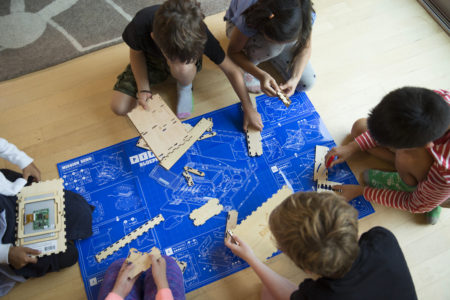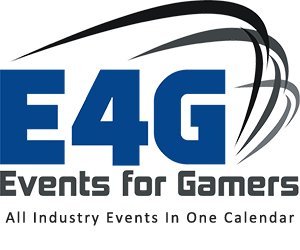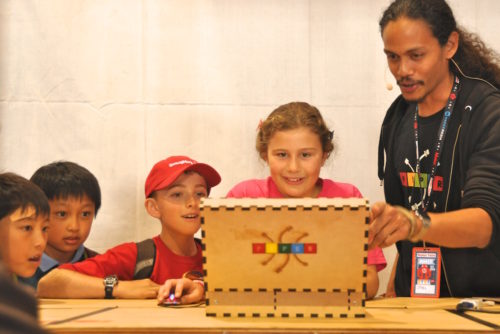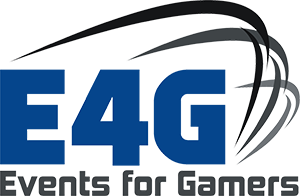E4G: In a group environment, do you feel the Piper Computer Kit is better suited for classrooms or STEM-centric hackathons?
Joel: Both classroom and hackathon use is well-suited for us right now. We love to see kids collaborating in building the kits. In schools we usually have kids get into teams of 2-4 to figure out how to make the computer and play through the electronics and programming challenges. We have found the social, teamwork and collaborative learnings to be just as important as some of the technical skills kids learn. For hackathons – one use case we like is to introduce Piper first in the classroom setting as a kind of technology “bootcamp” to get them familiar with the different parts, e.g. physical, electrical software. Then we see that those kids are then well primed to invent things in open-ended challenges.

E4G: What do you believe the future of STEM might be, and how would you like Piper to be a part of it?
Joel: STEM learning has got to be fun and easy kids, parents and teachers to get into without needing prior background. So one trend we are seeing is a movement towards turn-key learning experiences. The Piper Computer Kit is one example of a sort of “makerspace inbox” where everything you need is inside one package – including the learning content which is preloaded and designed to teach the concepts gradually. This is related to a second trend where we are seeing more and more learning of STEM happening outside the traditional classroom, and using computers to deliver self-guided content rather than only relying on expert teachers delivering lectures. I call this “computer-aided teaching” in the same way that Computer Aided Design (CAD), modeling and simulation revolutionized engineering – we are seeing that we can augment teachers in the classroom with more self-guided, hands-on STEM lessons.
We are looking forward to continuing on this trend of making more hands-on STEM experiences at Piper.
E4G: In what events or hackathons has Piper been presented or utilized as a platform to work on? What’s your impression of Piper’s reception?
Joel: As mentioned above we’re piloting Piper in over 600 schools right now. Many schools are also using Piper in after-school and weekend hackathon events. The reception has been overwhelmingly positive, especially in schools that already use Raspberry Pis or similar tools, and are looking to start makerspace programs.
E4G: In what groups or events would you like to see Piper involved in the future, and why?
Joel: I’d love to see more of the gaming community get involved with making custom content for platforms like Piper. The success of our approach right now has really hinged on good game design mixed with the physical building – and we ultimately want the community to be the main source of new content.
E4G: Looking ahead to 2019, what’s the overall roadmap for Piper?
Joel: It’s an interesting time for Piper. We’re growing at a rapid rate and we have a number of exciting announcements in the pipeline. Stay tuned!



